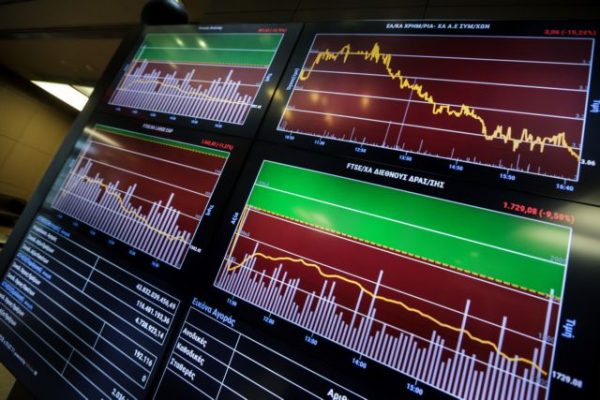
Greece’s economic growth outlook is set to surpass that of the eurozone’s core economies, according to a recent analysis by Capital Economics. However, a persistent labor shortage is expected to constrain growth, preventing it from reaching the levels seen in other so-called “peripheral” economies.
The world economic company adds that this situation could also lead to a further slowdown in Greece‘s growth, affected by the declining numbers of the working-age population, and the persistently low migration figures.
The Greek economy has been among the top performers in Europe in recent years. In the fourth quarter, Greece’s GDP was 9.7% higher than its pre-pandemic level, while the overall eurozone economy had expanded by only 4.7%.
As Capital Economics explains, Greece’s outperformance has been supported by a significant improvement in employment, which increased by 8.0% between the fourth quarter of 2019 and the third quarter of 2024.
This employment growth, however, is entirely due to a decline in the unemployment rate rather than an increase in the size of the labor force.
In fact, the country’s unemployment rate dropped from 17% in December 2019 to 9.4% in December 2024, the lowest level since the Global Financial Crisis. However, during this period, the size of the labor force remained unchanged.
In its analysis, Capital Economics cites three factors as the reasons why it does not anticipate Greece’s employment significantly increasing in the coming years.
First, Greece’s natural unemployment rate is likely around 8-9%, meaning there is limited room for it to decline much further.
Second, Greece has very weak demographic prospects, with the working-age population declining rapidly. This suggests that the labor force is also likely to shrink in the coming years.
Third, historically low migration means that immigrants are unlikely to fill a significant portion of the labor shortages in the future.
In contrast to some other southern eurozone economies, particularly Portugal, Greece has experienced a decline in its foreign-born labor force over the past two years.
Capital Economics also forecasts it is unlikely that this trend will reverse enough to offset the current decline in the working-age population.
Capital Economics concludes that labor shortage will be a significant constraint on the Greek economy in the coming years and even highlights some downside risks to its forecast of 2% economic growth in 2025 and 2026.
Latest News

Greece Defines Continental Shelf Limits and Maritime Zones in Landmark EU Document
The Maritime Spatial Planning (MSP) framework represents a comprehensive approach to spatial planning and is crucial for the successful development of a blue and circular economy

EU Praises Greece’s RRF Progress as Revised Recovery Plan Nears Completion
Athens is preparing to submit its revised “Greece 2.0” Recovery and Resilience Plan after Easter, with a slight delay from the initial timeline but with the European Commission’s approval.

Greek €200M 10Y Bond to be Issued on April 16
The 3.875% fixed-interest-rate bond matures on March 12, 2029, and will be issued in dematerialized form. According to PDMA, the goal of the re-issuance is to meet investor demand and to enhance liquidity in the secondary bond market.

German Ambassador to Greece Talks Ukraine, Rise of Far Right & Tariffs at Delphi Economic Forum X
Commenting on the political developments in his country, the German Ambassador stressed that it was clear the rapid formation of a new government was imperative, as the expectations across Europe showed.

Athens to Return Confiscated License Plates Ahead of Easter Holiday
Cases involving court orders will also be excluded from this measure.

Servicers: How More Properties Could Enter the Greek Market
Buying or renting a home is out of reach for many in Greece. Servicers propose faster processes and incentives to boost property supply and ease the housing crisis.

Greek Easter 2025: Price Hikes on Lamb, Eggs & Sweets
According to the Greek Consumers’ Institute, hosting an Easter dinner for eight now costs approximately €361.95 — an increase of €11 compared to 2024.

FM Gerapetritis Calls for Unified EU Response to Global Crises at EU Council
"Europe is navigating through unprecedented crises — wars, humanitarian disasters, climate emergencies," he stated.

Holy Week Store Hours in Greece
Retail stores across Greece are now operating on extended holiday hours for Holy Week, following their Sunday opening on April 13. The move aims to accommodate consumers ahead of Easter, but merchants remain cautious amid sluggish market activity.

Green Getaway Ideas for Easter 2025 in Greece
Celebrate Easter 2025 in Greece the sustainable way with eco-farms, car-free islands, and family-friendly getaways rooted in nature and tradition.








































 Αριθμός Πιστοποίησης
Αριθμός Πιστοποίησης